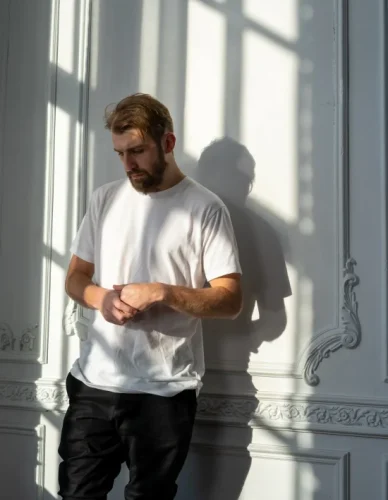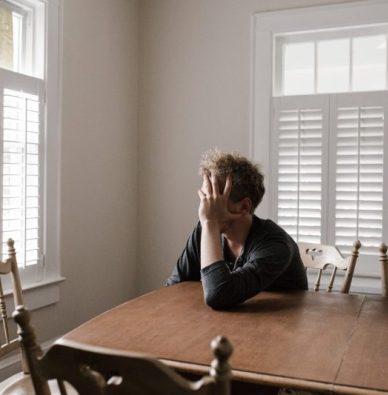Our Specialties
"I believe that a different therapy must be constructed for each patient because each has a unique story"
Irvin D. Yalom
Individual Therapy
Are you having a difficult time handling the struggles in your life?
Are you hesitant to talk to others about your problems?
If you answered “yes” to any of these questions, then individual therapy could be the solution you’ve been seeking. Individual therapy differs from group or alternative therapy methods in the way that you are the sole focus of a single therapist who helps you develop and achieve your goals for therapy.
If you’ve been feeling hopeless or lost lately, or struggling with a problem in your life that feels unsurmountable, individual therapy could help you improve your everyday life.
Individual therapy helps you win against whatever you’re battling by putting a real expert in your corner by means of a professional therapist.

Psychotherapy and counselling are effective treatments for many mental health conditions and are shown by research to have a powerful effect on mood, healthy brain changes associated with symptom reduction, and positive outcomes for a wide variety of presenting concerns.
So if any of these sound like you…
- You keep worrying about the same problem over and over
- You don’t know who you could ever trust with knowing about your secret struggle
- You wish there was somebody who could tell you why you feel this way
- You’re interested in therapy, but you don’t want to give up total control
- Other areas of your life are being negatively impacted by your struggle
- You need somebody to listen to you and your feelings for once
- You’re interested in therapy, but not sure how it could fit into your life
…Then individual therapy could be right for you.
If you’re looking for help in improving your everyday life, contact us today for a free consultation.
Couples Counselling
Do you feel like your relationship is at a standstill? Are you and your partner stuck in the same argument loop every night? Do you feel like you and your partner are drifting away? Do you desire more intimacy between you and your partner?
Couples’ relationships can be hard work, and like cars, they require regular maintenance to keep them running smoothly. Sometimes, you are able to do the necessary maintenance on your own. Other times, if the issues are more severe you may need to seek the support of a therapist. Couples therapy can be beneficial for all types of intimate relationships.
Relationships take work. Add in a job, kids, and other responsibilities and that work might feel daunting.

Whether you’re gridlocked in perpetual conflict, feel distant from your spouse or partner, or have experienced a breach of trust, couples counselling is an effective means to bring clarity, insight, and constructive plans to alleviating negative cycles and to enhancing the relationship.
With couples therapy, you’ll learn how to communicate your feelings and needs, and get what you want out of your relationship.
If you are hoping to gain clarity, new insight or reconnect again, contact us for a free consultation.
Psychotherapy for Depression
Are you feeling hopeless, isolated and not your usual self?
Do these thoughts ever enter your mind?
- I am worthless and can’t do anything about it.
- I feel guilty for just wanting to eat, sleep and be alone.
- I hate who I am these days.
- I can’t stop crying, which makes me want to stay away from others.
- I feel gut-wrenching pain, but no one understands.
- My life and the world around me are dark. I hate it, but I can’t change it.
If you have had any variation of these thoughts and don’t feel like your usual self, chances are you may be suffering from depression.

We want you to know that you are not alone. Many of our clients find relief in realising that their struggle does not own them and that there are many options available to once again have hope for their lives.
We understand the social stigmas that come with the label of being depressed, and thereby aim to help clients sort out their environmental, biological and circumstantial factors while offering support and care through a very dark time in their lives.
You can find relief in realising that your struggle does not own you and there are options available to regain hope in your life.
If you are hoping to feel like yourself again, contact us today for a free consultation.
Psychotherapy for Stress & Anxiety
Are stress and anxiety taking over your life? Does it feel like you can’t control it no matter how hard you try? Have you already tried therapy but found it ineffective?
Do you feel anxiety in situations that are safe and shouldn’t be anxiety provoking?
Does it feel like you always have an underlying degree of anxiety?
When it comes to treating anxiety disorders, research shows that therapy is usually the most effective long-term option. That’s because anxiety therapy – as opposed to anxiety medication – treats more than just symptoms of the problem.
Often, these are the symptoms of anxiety:

- Nervousness, restlessness or being tense
- Feelings of danger, panic or dread
- Rapid breathing or hyperventilation
- Increased or heavy sweating
- Trembling or muscle twitching
- Weakness or lethargy
- Difficulty focusing or thinking clearly about anything other than the thing you’re worried about
- Insomnia
- Obsessions about certain ideas, a sign of obsessive-compulsive disorder
- Anxiety surrounding a particular life event or experience that has occurred in the past, a sign of post-traumatic stress disorder
Therapy can help to uncover the underlying causes of your worries and fears and look at situations in a new, less frightening way.
If you suffer from anxiety or stress, we invite you to contact us today for a free consultation.
Psychotherapy for Codependency
Are you always worried about what others think of you?
Are you afraid of saying what you really want to say because of other peoples reaction or how angry, upset, dismissive or rejecting they are towards you?
Are you constantly trying to please your parents or partner because you are trying to make them happy and need their approval?
Are you living trying to be perfect or striving to live up to other people's expectations?
You may feel like there is a war going on inside you, you feel like you know the right thing to say or do but then there’s this energy of fear that controls you. You may often feel trapped, and want to escape or avoid the conflict.

These can be signs of codependency in the relationship. In these circumstances, the support, guidance, and assistance of a therapist is fundamental to healing from codependency and we invite you to contact us today for a free consultation.
Psychotherapy for Trauma
Emotional and psychological trauma can result from extraordinarily stressful events that undermine your sense of security, making you feel helpless in a dangerous world. Any situation that leaves you feeling overwhelmed, unprotected and isolated can result in trauma, even if it doesn’t involve physical harm. It’s not the objective circumstances that determine whether an event is traumatic, but your subjective emotional experience of the event. The more frightened and helpless you feel, the more likely you are to be traumatised.
Trauma can cause a person to live with deep emotional pain, fear, confusion, or posttraumatic stress far after the event has passed and can result in depression, anxiety or anger.

While many people can recover from trauma over time with the love and support of family and friends and bounce back with resiliency, others may discover effects of lasting trauma, which can cause a person to live with deep emotional pain, fear, confusion, or posttraumatic stress far after the event has passed.
In these circumstances, the support, guidance, and assistance of a therapist is fundamental to healing from trauma.
Trauma Symptoms
According to the four types of symptoms listed in the DSM-5
Avoidance Symptoms
- Avoiding specific locations, sights, situations, and sounds that serve as reminders of the event
- Anxiety, depression, numbness, or guilt
Re-experiencing Symptoms
- Intrusive thoughts, nightmares or flashbacks
Hyperarousal Symptoms
- Anger, irritability, and hypervigilance
- Aggressive, reckless behaviour, including self-harm
- Sleep disturbances
Negative Mood and Cognition Symptoms
- Loss of interest in activities that were once considered enjoyable
- Difficulty remembering details of the distressing event
- Change in habits or behaviour since the trauma
Research has proven psychotherapy to be the most effective form of treatment for trauma. In these circumstances, the support, guidance, and assistance of a therapist is fundamental to healing from trauma and we invite you to contact us today for a free consultation.
Psychotherapy for Life Transitions
“YOUR LIFE IS A STORY OF TRANSITION. YOU ARE ALWAYS LEAVING ONE CHAPTER BEHIND WHILE MOVING ONTO THE NEXT” ~ANONYMOUS
Has your life been touched by a major event such as a death, divorce, or layoffs at work?
Are you a parent who is overwhelmed with parenting, or do you need a little extra help adjusting to parenthood?
Life often presents us with our fair share of challenges. Life transitions, even the positive ones, can leave us feeling stressed, confused and vulnerable. In an empathic, collaborative, and supportive environment we will help you to work through your difficulties and by doing so, also become stronger, more confident, and better prepared for what life throws at you.

Common Life Transitions
Some of the most common life transitions we help clients navigate are:
- Going away to university
- Adjusting to a new job
- Getting married
- Having a new baby (postpartum depression)
- Parenting
- Empty nesting
- Breakup, separation or divorce
- Infidelity recovery
- Retirement
- Job loss or major change in career
- Relocation
- Financial gain/loss
- Serious illness or disability
- Issues pertaining to ageing
- Death of a loved one
- Questioning your sexual/gender identity
- Infertility and Reproduction
Sometimes we can handle change and adversity by ourselves and sometimes we need a little help. I’m here to offer a warm and encouraging environment where you can speak candidly and receive care, compassion and a greater understanding of the reason for your difficulties so you are better able to face current challenges as well as challenges that may arise in the future.
If you are struggling with a life transition and would like to explore treatment options, we invite you to contact us today for a free consultation.
Grief & Bereavement Counselling
Bereavement and grief aren’t light-hearted topics. Bereavement refers to the process of recovering from the death of a loved one, and grief is a reaction for any form of loss. Both encompass a wide range of emotions such as fear, anger and deep, deep sadness.
The process of adapting to a loss can dramatically change from person to person, depending on his or her background, beliefs, relationship to the person who’s passed, and other factors.
Common symptoms of grief can be physical, emotional or social.
A few common symptoms in these categories are:

Physical
- Crying and sighing
- Headaches
- Loss of appetite
- Difficulty sleeping
- Weakness
- Fatigue
Emotional
- Feelings of sadness and yearning
- Feelings of worry or anger
- Feelings of frustration or guilt
Social
- Feeling detached from others
- Self-isolation from social contact
- Behaving in ways that are not normal for you
Every grieving experience is different. A person may be able to continue their day-to-day routine after one loss, yet not be able to get out of bed after the loss of someone else. Whatever your personal symptoms are, grief and bereavement counselling have been proven to help.
If you are experiencing grief-related thoughts, behaviours, or feelings that are distressing, please contact us today so we can schedule an appointment.
Psychotherapy for Adolescents
“When we talk about our feelings, they become less overwhelming, less upsetting, and less scary.” Fred Rogers
Adolescents may go through difficult periods as they grow up and leave childhood behind them. The American Academy of Paediatrics calls adolescence a time of major transition physically, emotionally and socially.
Common Stressors and Challenges of Adolescence:
- School Difficulties
- Peer Relationships
- Family Relationships
- Sexuality
- Substance Abuse
- Technology and Cellphone use

If adolescents are not able to adequately handle these pressures, they can make choices that are not in their best interest. As a result, adolescents may experience low self-esteem, anxiety, depression, sleep problems and isolation.
Psychotherapy can help adolescents feel better and develop healthy ways to manage the stress and challenges in their life and relate to others in a more positive way. Contact us today for a free consultation.
Faith-Based Counselling
Has your light become dimmer over the years? Are you struggling to find your true path and calling? Do you wish for guidance from a trained professional who will understand and respect that your number one priority is building a relationship with God?
If so, you are definitely not alone. More and more of our clients are looking for faith-based counselling that can heal the mind and the soul. They want to be able to not only discuss the issues they are having but also openly discuss God, the Bible and their belief in the power of prayer.

And we are not the only therapists who have noticed that people prefer to seek guidance from those who support, rather than challenge their faith. In fact, according to a nationwide survey by the American Association of Pastoral Counsellors (AAPC), 83% of Americans believe their spiritual faith and religious beliefs are closely tied to their state of mental and emotional health. Three-quarters have stated it’s important for them to work with a therapist who integrates their values and beliefs into the counselling process. And more respondents said they would prefer to see a religious counsellor (29%) than a psychiatrist (27%), psychologist (17%) or family doctor (13%).
Just as no two people are alike, no two faith-based counsellors are alike either. Our goal is to holistically integrate the mind, body and spirit for people of all faiths. If you or someone you love is interested in exploring faith-based treatment, please get in touch with us. We would be happy to discuss how we may be able to help. In our practice, all faiths are welcome.
Where tranquility begins: Journey to self-discovery, supported every step of the way





Psychotherapy for Social Anxiety
Do you experience anxiety or nervousness when faced with social situations?
Do you fear being judged or criticised by others?
Are you worried about making mistakes or being embarrassed in front of others?
While it is normal to feel nervous in some social situations, people who experience social anxiety tend to avoid everyday interactions that cause them significant fear, anxiety, self-consciousness, and embarrassment.
People with Social Anxiety Disorder often experience significant distress in the following situations:
If your social anxiety is having a negative impact on your life, contact us for a free consultation to begin the process to feel better.